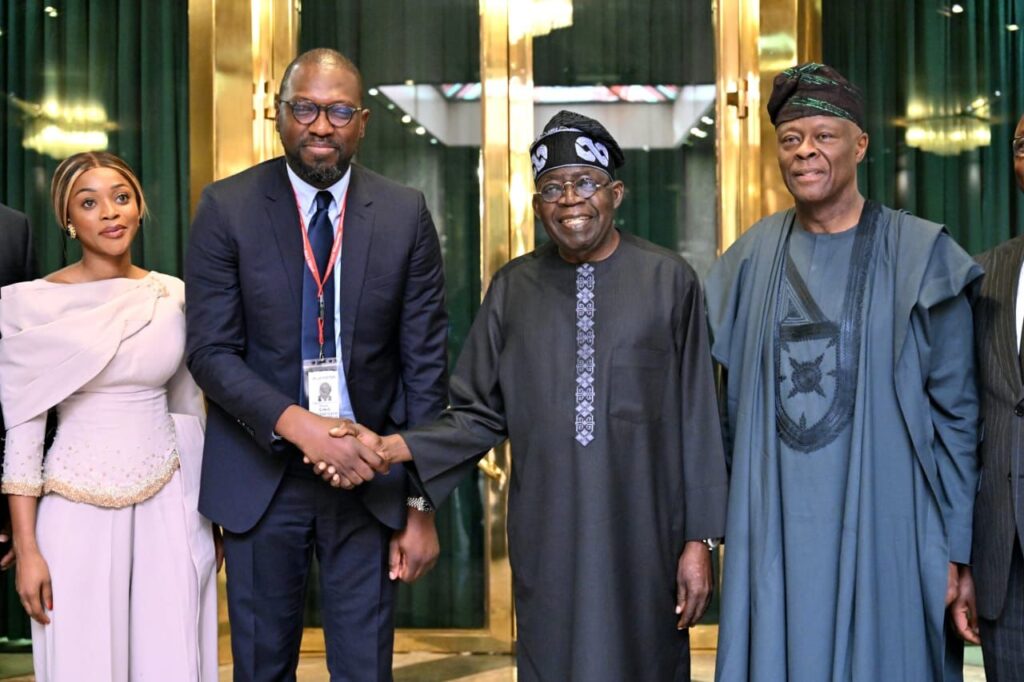In this piece, BENJAMIN SAMSON examines the “de-marketing” comments on Nigeria by the leader of the United Kingdom’s (UK) Conservative Party, Kemi Badenoch, amid criticisms from Nigerians.
Kemi Badenoch, a British MP of Nigerian descent, who is currently the leader of the Conservative Party (also called Tory) in the United Kingdom, has been on a spree of denigrating her home country, Nigeria. She has made many unpalatable and controversial remarks about Nigeria.
As far back as 2022, Badenoch had accused Nigerian politicians of mismanaging public funds. Likewise, speaking recently at an event organised by a British think-tank producing research on economic and social issues, Onward, Badenoch noted that she doesn’t want the UK to suffer the fate of “terrible governments” like Nigeria, saying, “And why does this matter so much to me? It’s because I know what it is like to have something and then to lose it. I don’t want Britain to lose what it has.
“I grew up in a poor country and watched my relatively wealthy family become poorer and poorer, despite working harder and harder as their money disappeared with inflation.
“I came back to the UK aged 16 with my father’s last £100 in the hope of a better life. So, I have lived with the consequences of terrible governments that destroy lives, and I never, ever want it to happen here.” She has since then made many negative comments about Nigeria both on social and traditional media.
Diaspora disconnect
Speaking to this reporter about Kemi’s comments about Nigeria, the project Director of International Centre for Migration Policy Development, a non-governmental organisation, Dr. Ajibade Johnson, said such comments could be attributed to a disconnect between Nigerians in the Diaspora and the reality in the country.
He said, “Kemi is simply a manifestation of a wider problem amongst the global Nigerian Diaspora. While we are often lauded for our ambition and ability to be socially mobile outside of Nigeria, there is often a massive disconnect between Diaspora communities and the reality of Nigeria today.
“Diaspora Nigerians disclaim any liability whatsoever in the mess at home, and they give the impression that their departure should energise those left behind to recreate the country. They also tend to premise their probable return on how quickly Nigerians at home are able to fix the country. Yes, they will return only when there is constant electricity, good roads and sundry infrastructure and whenever bribery, corruption and tribalism have been wiped out and employment is guaranteed.
“It does not occur to Diaspora Nigerians that these ambitions on good life are shared by Nigerians at home too. The vast majority of Nigerians in Nigeria are not complicit in bad governance and corruption among officials.
“The role of Diaspora communities should be to act as bridging differences, not deepening them. It’s important that we keep people like Kemi accountable, by continuing to educate and engage her with critical and constructive open conversation.”
Likewise, a lecturer in the department of History and International Relations, Nasarawa State University Keffi, Dr. Paul Akor, said, “Such a narrative might be excusable from a foreigner, but here, we have a Nigerian pandering to the sentiments of her adopted country, essentially saying what they want to hear. Her remarks are greatly surprising, especially coming from someone of Nigerian heritage.
Nigeria’s strength lies in its diversity with over 250 ethnic groups and multiple religions coexisting under one flag. Reducing a region and its people to a single negative label is not just inaccurate but harmful, as it reinforces stereotypes that undermine national unity and mutual understanding.
“Besides, this country already has great men and women, both at home and in foreign lands, who are flying its colours very high. Individuals like Amina J. Mohammed; Akinwumi Adesina; Ngozi Okonjo-Iweala; Chimamanda Ngozi Adichie, and even footballer Ademola Lookman have shown the world that Nigeria’s strengths and talents far outweigh its challenges. Similarly, great Nigerians in the Diaspora, like the aforementioned, exemplify how to critique one’s homeland constructively while celebrating its culture, people, and aspirations. They understand the weight of their words and use them to inspire hope, not despair.
“Mrs. Badenoch’s comments are a warning to all Nigerians, both domestically and outside. Growth requires constructive criticisms, but the way that criticism is presented has a significant impact. Public personalities and leaders must strike a balance between candour and tact, making sure their remarks don’t unintentionally hurt the very people and places they say they care about.
“It is worth noting that narratives about Nigeria, or any country, are often influenced by those who control the global conversation. For every criticism, there should be an equal effort to highlight the country’s resilience, cultural richness, and untapped potential. A nation’s story is multifaceted, and no single aspect should define it. The demonisation of our country should not be a pre-requisite to winning a leadership contest of a political party in a foreign land and if it is, one cannot expect any self-respecting Nigerian to applaud it.
“Kemi is one of us even if she has made mistakes. We will not discard the baby with bath water. She must, however, take lessons from her predecessors. Rishi Sunak, for example, became prime minister of Britain despite never disparaging India. Kemi can get to the UK Government House without taking advantage of Nigeria’s inadequacies. After all, she is achieving greatness because of her Nigerian spirit.”
Politics
However, a social commentator, Chude Nwafor, accused her of painting Nigeria in bad light to achieve her political ambition.
He said, “She came under harsh criticism recently for her uncomplimentary remarks about Nigeria. People have compared her with Rishi Sunak, who became the prime minister of the UK, but did not make it his duty to denigrate India, his country of ancestry, in every speech or interview.
“Some have praised Badenoch for speaking the truth about Nigeria, but what Badenoch said about Nigeria had nothing to do with truth or falsehood. Badenoch was simply playing politics using Nigeria as her footstool. She was acting like a typical politician concerned about the best route to raising her chances of becoming the prime minister of the UK. She is aware that she is Black in a predominantly White country at a time when White nationalism is sweeping through Europe and North America, and immigrants are facing attacks.
“For Badenoch, the way to prove that she is truly British, an insider, who deserves to be prime minister, is to distance herself from Nigeria. It is political opportunism. It works for many politicians across the world. It just worked for Donald Trump in the United States with his rhetoric of ‘America First,’ ‘Make America Great Again’, close the borders, etc. In Nigeria, Goodluck Jonathan used it when he pushed the ‘I-had-no-shoes’ narrative. Muhammadu Buhari used it when he packaged himself as a clean and simple leader, who did not care about the good things of life and would fight against corruption.”
Dangerous rhetoric
Nwafor continued, “Admitting she didn’t care about colonialism was simply the last straw for me, but there were numerous conversations which revealed her xenophobia towards Caribbean communities and hostility towards other Nigerians.
“This brings me to her recent comments about identifying as Yoruba as opposed to Nigerian, and the Islamophobic subtext of her distancing herself from northern Nigeria, which she generalised as a haven for Boko Haram and Islamists, and called them her ‘ethnic enemies.’
“Not only is this rhetoric dangerous and inflammatory, stoking ethnic tensions both domestically in the UK and in Nigeria, it’s dishonest. Kemi largely grew up in Lagos, where Muslim and Christian communities live peacefully side by side. There is even a practice of ‘Chrislam,’ which is a merging of both Christian and Muslim practices, and many Yoruba families have both Muslim and Christian members of their family.
“It’s fundamentally un-Yoruba of her to categorise Islam as a dangerous religion; it’s bizarre of her to hold this viewpoint. Furthermore, the north of Nigeria is certainly majority Muslim, but it’s a home to many ethnicities, all with distinct cultures and histories.”
Also, a House of Representative aspirant in the 2023 elections on the platform of the Labour Party (LP), Hajiya Lami Adiya, said Kami does not have what it takes to govern a diversified society like the U.K.
She said, “Genuine national leaders don’t hold sectarian views. Kemi is well aware of this, so it makes little sense to refer to northern Nigeria as a monolith.
“As for Boko Haram, they were largely defeated by the Nigerian military in 2015. Of course, attacks still happen, but largely limited, so this is a very dated assessment of the north and speaks to her lack of real knowledge about contemporary Nigeria.
“How can somebody with these viewpoints be expected to ease tensions between Ireland and Northern Ireland, for example, or even Scotland and England? Most nations now are multi-ethnic, with histories of war or colonisation playing a part in how they co-exist today; somebody who seeks to deepen these divides rather than bridging them, by using terms such as ‘ethnic enemies’, cannot be trusted to herald a more peaceful future.
“At a time where geopolitical tensions are at an all-time high across the world, we don’t need more leaders who are lackadaisical and lazy in their communication and understanding. Not only does it contribute to higher risk of violence across many communities, it also acts as a smoke screen or distraction from actually keeping political leaders accountable.”
Love for country
In his view, Dr. Johnson urged Nigerians in the Diaspora to always put their country first in whatever they do.
“Love for one’s country is not blind allegiance; it is the recognition that a nation is worth investing in, flaws and all. It means acknowledging its shortcomings while striving to be part of the solution. Nigeria, with its vibrant history and resilient people, deserves this kind of love, particularly from those who share its heritage.
“When I turned forty, I made a personal commitment to dedicate my life to Nigeria. It wasn’t an easy decision, given the governance, security, and economic challenges the country faces. Yet, I believe that Nigeria is worth the effort – not just for its past or present, but for the future generations who will inherit it. This love for a country is not about romanticising its struggles but about seeing its potential and committing to its growth.
“Statements like Kemi Badenoch’s, which paint Nigeria in a negative light without context or nuance, do not help this mission. Instead, they deepen a narrative of hopelessness, discouraging the very people who have the power to effect change. Nigeria’s challenges are undeniable, but dismissing it outright undermines the efforts of those who are working tirelessly to improve it,” he said.
New narrative
“To reposition Nigeria on the global stage, we need more than policy reforms or economic growth; we need a shift in how we perceive ourselves. Love for the country is at the heart of this transformation. It is what drives individuals to see beyond the flaws and focus on the possibilities.
“For me, this love has been the fuel that keeps me going despite the resistance I’ve faced, both internally and externally. It is what motivates me to continue advocating for political literacy, better governance, and national unity. It is what keeps me hopeful that Nigeria can rise above its challenges and fulfill its purpose as a leader among nations.
“We need more Nigerians at home and abroad who are willing to invest in this vision. Criticism, when constructive, is necessary. But it must come from a place of love and a desire to see Nigeria thrive. Words carry power, and we must use them to uplift, not tear down,” he said.




 2 weeks ago
20
2 weeks ago
20








 English (US) ·
English (US) ·